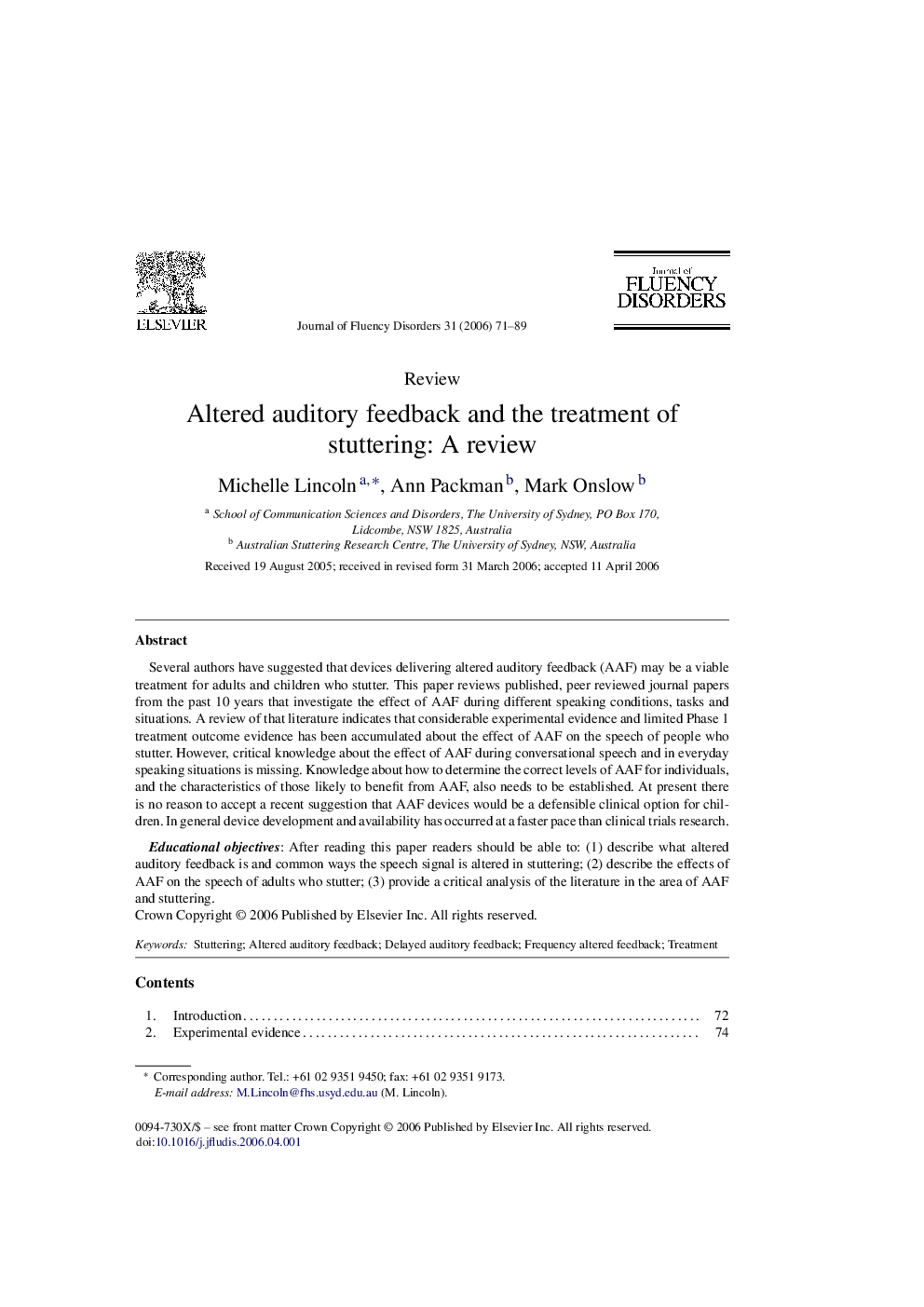| Article ID | Journal | Published Year | Pages | File Type |
|---|---|---|---|---|
| 911701 | Journal of Fluency Disorders | 2006 | 19 Pages |
Several authors have suggested that devices delivering altered auditory feedback (AAF) may be a viable treatment for adults and children who stutter. This paper reviews published, peer reviewed journal papers from the past 10 years that investigate the effect of AAF during different speaking conditions, tasks and situations. A review of that literature indicates that considerable experimental evidence and limited Phase 1 treatment outcome evidence has been accumulated about the effect of AAF on the speech of people who stutter. However, critical knowledge about the effect of AAF during conversational speech and in everyday speaking situations is missing. Knowledge about how to determine the correct levels of AAF for individuals, and the characteristics of those likely to benefit from AAF, also needs to be established. At present there is no reason to accept a recent suggestion that AAF devices would be a defensible clinical option for children. In general device development and availability has occurred at a faster pace than clinical trials research.Educational objectives: After reading this paper readers should be able to: (1) describe what altered auditory feedback is and common ways the speech signal is altered in stuttering; (2) describe the effects of AAF on the speech of adults who stutter; (3) provide a critical analysis of the literature in the area of AAF and stuttering.
